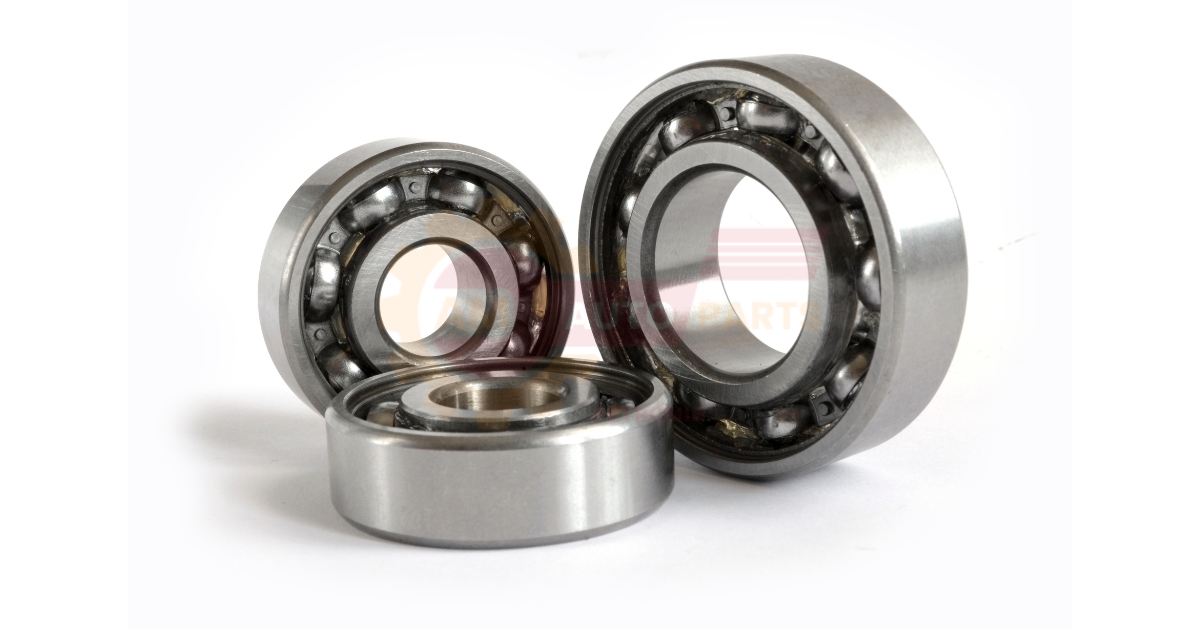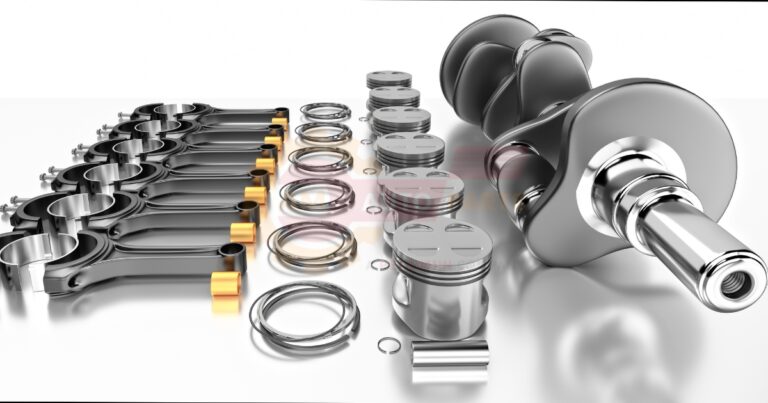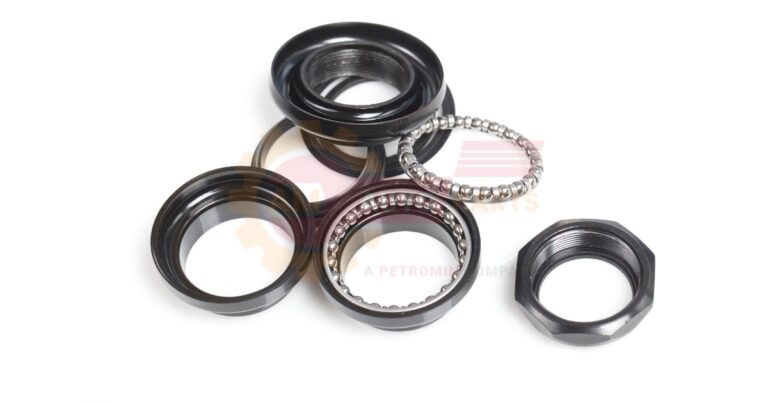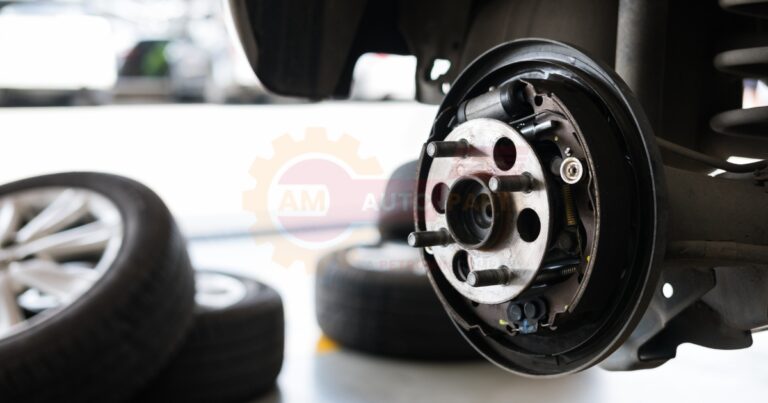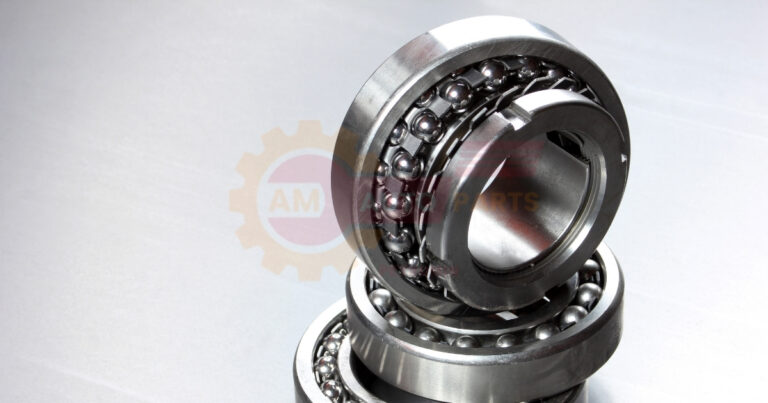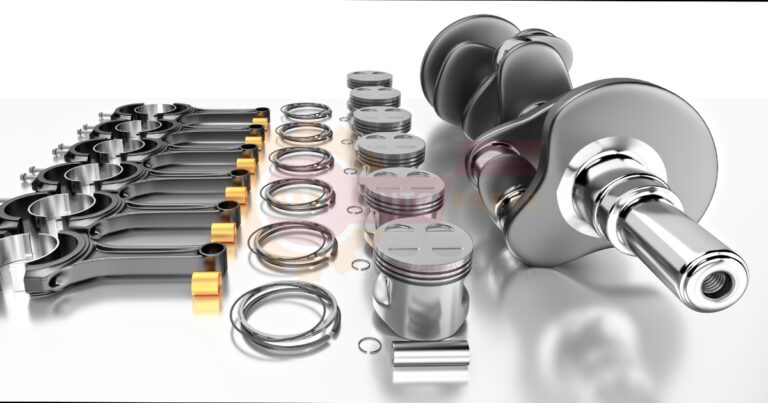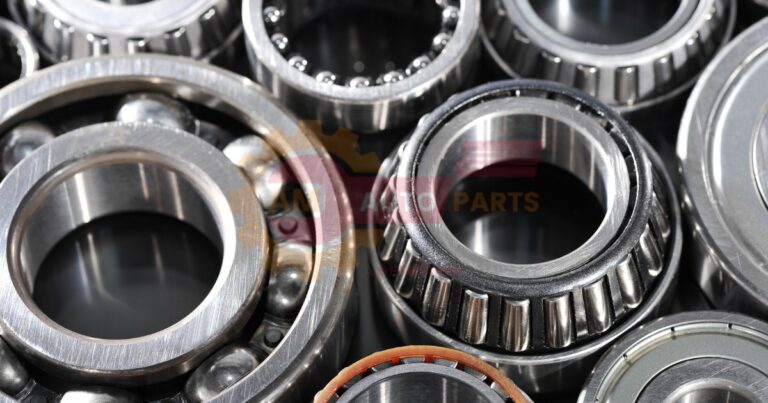Car Wheel Bearings: Function, Lifespan, and Maintenance
What Are Car Wheel Bearings?
Car wheel bearings are crucial components that allow the wheels to rotate smoothly with minimal friction. They are typically made of steel and consist of small metal balls encased in a ring. These bearings support the weight of the vehicle and ensure a smooth ride.
Role of Bearings in Car Performance
Bearings play a vital role in car performance by reducing friction and wear between the wheel and the axle. This not only enhances the vehicle’s efficiency but also contributes to a smoother and quieter ride. Without properly functioning bearings, the wheels would not turn efficiently, leading to increased fuel consumption and potential damage to other car parts.
Types of Car Wheel Bearings
There are several types of car wheel bearings, each designed for specific applications and performance requirements. The most common types include:
- Ball Bearings : Versatile and commonly used in most vehicles.
- Roller Bearings : Designed for heavier loads and often found in trucks.
- Tapered Roller Bearings : Used in applications requiring both radial and axial loads, such as in the front wheels of cars.
How Long Do Car Wheel Bearings Last
Average Lifespan of Car Bearings
The average lifespan of car wheel bearings typically ranges from 85,000 to 100,000 miles. However, this can vary based on driving conditions, vehicle type, and maintenance practices.
Factors Affecting Wheel Bearing Longevity
Several factors can influence the longevity of car wheel bearings, including:
- Driving Conditions : Rough roads and off-road driving can accelerate wear and tear.
- Maintenance : Regular inspection and lubrication can extend the lifespan of bearings.
- Quality of Bearings : High-quality bearings tend to last longer than cheaper alternatives.
Statistics on Bearing Replacement Frequency
According to a study by the National Highway Traffic Safety Administration (NHTSA), approximately 1 in 10 vehicles will require wheel bearing replacement within the first 100,000 miles. This highlights the importance of regular maintenance and timely replacement to ensure vehicle safety and performance.
Common Causes of Car Bearing Failure
Impact of Road Conditions on Bearings
Poor road conditions, such as potholes and uneven surfaces, can cause significant stress on car wheel bearings. This can lead to premature wear and eventual failure.
Effects of Improper Installation
Improper installation of wheel bearings can result in misalignment and uneven load distribution. This not only reduces the lifespan of the bearings but can also cause damage to other components of the vehicle.
Contamination and Lack of Lubrication
Contamination from dirt, water, and other debris can infiltrate the bearings, leading to increased friction and wear. Additionally, lack of proper lubrication can cause the bearings to overheat and fail prematurely.
Recognizing Bad Wheel Bearing Symptoms
Unusual Noises While Driving
One of the most common signs of a bad wheel bearing is unusual noises, such as grinding, humming, or growling sounds coming from the wheels. These noises often become more pronounced when turning or accelerating.
Steering Wheel Vibrations
Faulty wheel bearings can cause vibrations in the steering wheel, especially at higher speeds. This can make driving uncomfortable and potentially dangerous.
Uneven Tire Wear Patterns
Bad wheel bearings can lead to uneven tire wear, as they cause the wheels to wobble and not rotate smoothly. This can result in the need for premature tire replacement.
Risks Associated with Faulty Car Bearings 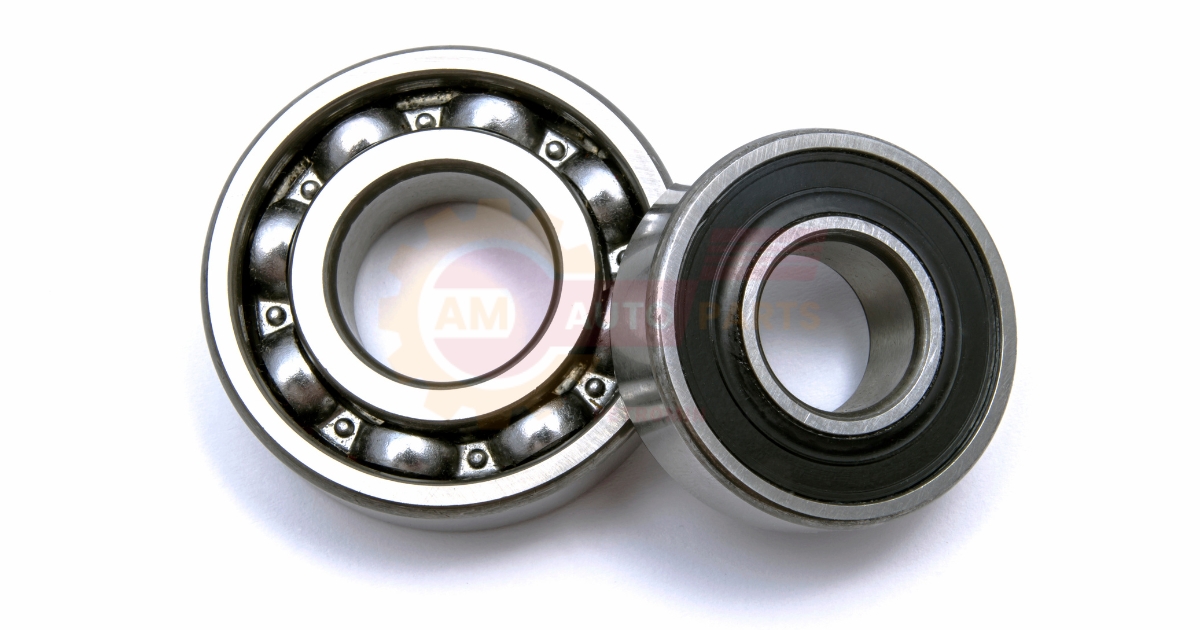
Safety Hazards of Driving with Bad Bearings
Driving with faulty car bearings poses significant safety risks. The wheels may lock up or detach from the vehicle, leading to loss of control and potential accidents.
Potential Damage to Other Vehicle Components
Faulty bearings can cause damage to other vehicle components, such as the axle, hub, and suspension system. This can result in costly repairs and reduced vehicle lifespan.
Impact on Fuel Efficiency
Bad wheel bearings can increase friction and resistance, leading to decreased fuel efficiency. This means more frequent trips to the gas station and higher fuel costs.
Proper Maintenance of Car Wheel Bearings
Regular Inspection Techniques
Regular inspection of car wheel bearings is essential to ensure their longevity and performance. This includes checking for any signs of wear, noise, or vibration. It is also important to inspect the seals and ensure they are intact.
Lubrication Best Practices
Proper lubrication is crucial for the smooth operation of wheel bearings. It is recommended to use high-quality grease and follow the manufacturer’s guidelines for lubrication intervals. Over-lubrication or under-lubrication can both lead to bearing failure.
When to Seek Professional Help
If you notice any symptoms of a bad wheel bearing or are unsure about the condition of your bearings, it is best to seek professional help. A qualified mechanic can perform a thorough inspection and recommend the necessary repairs or replacements.
Choosing Quality Replacement Parts for Car Bearings
Importance of OEM vs. Aftermarket Bearings
When replacing car wheel bearings, it is important to consider the quality of the replacement parts. Original Equipment Manufacturer (OEM) bearings are designed to meet the specific requirements of your vehicle, ensuring optimal performance and longevity. Aftermarket bearings can vary in quality, so it is important to choose reputable brands.
Factors to Consider When Selecting New Bearings
When selecting new wheel bearings, consider the following factors:
- Compatibility : Ensure the bearings are compatible with your vehicle make and model.
- Quality : Choose high-quality bearings from reputable manufacturers.
- Warranty : Look for bearings that come with a warranty for added peace of mind.
AM Autoparts’ Range of High-Quality Car Bearings
AM Autoparts offers a wide range of high-quality car bearings that are designed to meet the specific needs of your vehicle. Their bearings are made from durable materials and are rigorously tested to ensure optimal performance and longevity.
DIY vs. Professional Wheel Bearing Replacement 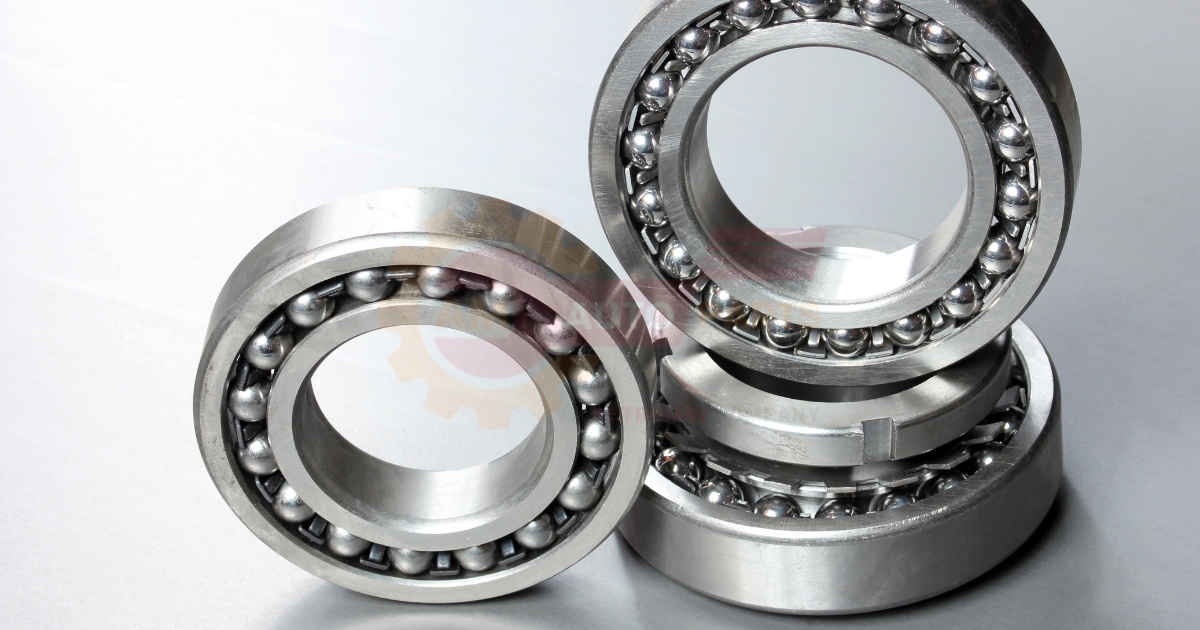
Tools Required for Bearing Replacement
Replacing car wheel bearings requires specific tools, including:
- Jack and Jack Stands : To lift and support the vehicle.
- Socket Set : For removing and installing bolts.
- Bearing Puller : To remove the old bearing.
- Torque Wrench : To ensure proper tightening of bolts.
Step-by-Step Guide for DIY Enthusiasts
For those who prefer a hands-on approach, here is a step-by-step guide to replacing car wheel bearings:
- Lift the Vehicle : Use a jack and jack stands to lift and support the vehicle.
- Remove the Wheel : Use a socket set to remove the wheel.
- Remove the Brake Caliper and Rotor : Use the appropriate tools to remove the brake caliper and rotor.
- Remove the Old Bearing : Use a bearing puller to remove the old bearing.
- Install the New Bearing : Install the new bearing and ensure it is properly seated.
- Reassemble the Components : Reinstall the brake rotor, caliper, and wheel.
- Lower the Vehicle : Lower the vehicle and perform a test drive to ensure everything is functioning properly.
Benefits of Professional Bearing Installation
While DIY replacement can be cost-effective, professional installation offers several benefits: Crankshaft bearing maintenance Regularly check and replace worn crankshaft bearings to keep your engine running smoothly and prevent costly damage Bearing replacement pricing can vary based on the type of vehicle and the specific bearings needed Mechanics often charge for both parts and labor when performing
- Expertise : Professional mechanics have the knowledge and experience to ensure proper installation.
- Warranty : Many repair shops offer warranties on their work, providing added peace of mind.
- Time-Saving : Professional installation can save you time and effort, allowing you to focus on other tasks.
Advancements in Car Bearing Technology
Innovations in Bearing Materials
Recent advancements in bearing materials have led to the development of more durable and efficient car wheel bearings. These materials include ceramic and hybrid bearings, which offer improved performance and longevity compared to traditional steel bearings.
Smart Bearings and Predictive Maintenance
Smart bearings equipped with sensors can monitor their own condition and provide real-time data on performance. This allows for predictive maintenance, where potential issues can be identified and addressed before they lead to failure.
Future Trends in Automotive Bearing Design
The future of automotive bearing design is focused on improving efficiency, durability, and sustainability. This includes the development of lightweight materials, advanced lubrication systems, and environmentally friendly manufacturing processes.
By understanding the importance of car wheel bearings and following proper maintenance practices, you can ensure the longevity and performance of your vehicle. Whether you choose to replace the bearings yourself or seek professional help, it is important to use high-quality parts and follow the manufacturer’s guidelines. With advancements in bearing technology, the future of automotive bearings looks promising, offering improved performance and reliability for years to come.
Frequently Asked Questions (FAQs)
How much does it cost to replace car wheel bearings?
The cost to replace car wheel bearings can vary depending on the vehicle make and model, as well as labor costs. On average, the cost ranges from 50 to 00 per wheel, including parts and labor.
Can you drive with a bad wheel bearing?
Driving with a bad wheel bearing is not recommended. It can lead to severe damage to the vehicle and pose significant safety risks. It is best to have the bearing inspected and replaced as soon as possible.
How often should car bearings be inspected?
Car wheel bearings should be inspected during regular maintenance checks, typically every 30,000 to 50,000 miles. However, if you notice any symptoms of a bad bearing, it is important to have them checked immediately.
